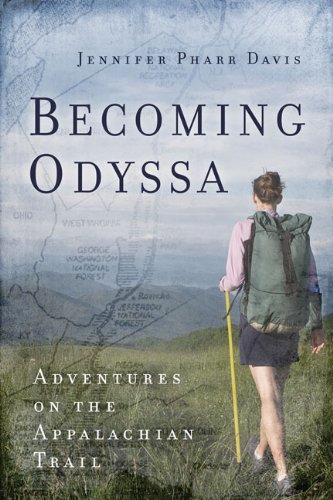
In 2018, I spent 5 months hiking the Appalachian Trail, a 3,200 km trail that runs from Maine to Georgia. I had a kindle with me the entire time so I could read in my tent at night.
There’s a lot of books about the Appalachian Trail. It’s a terrifyingly difficult but beautiful experience that makes you want to write a book after you get through it. The most popular (and my least favourite) is Bill Bryson’s Walk in the Woods. Less well-known, but definitely one of my favourites, is Jennifer Pharr Davis’ Becoming Odyssa.
Just after graduating college, the burning flame of wanderlust led her to Springer Mountain in Georgia, the beginning of the Appalachian Trail. Her friends and family thought she was crazy. Once the wanderlust died down and the adversity seemed impossible, she started to think she was crazy too.
She not only finished hiking the entire trail, 6 years later in 2011, she hiked it again and set the fastest known time on the Appalachian Trail completing it in 46 days.
The book is less about hiking than it is about self-discovery and “learning to smile and laugh just for me, even if no one else was around”. If you’re an inspiring female solo traveler, this book will fill you with the courage to take the first step.
From the book:
In college we had a class discussion about whether the tale of Odysseus taking ten years to return home in the midst of magic, gods, distraction, and disaster could be a real story. I was the only one in the class who thought it was possible. Now it all made sense. I had just spent the past four months traveling a 2,175-mile footpath. And during that time, I had been struck by lightning and caught in a blizzard. I met a pirate, escaped a stalker, and encountered illegal drugs. I walked with a moose, avoided serpents of supernatural size, and fought with dark armies (of bugs). I suffered unexplained ailments, underwent spells of fatigue, and was rescued countless times by complete strangers. My best friend was a traveling comedian and minstrel, and I happily took part in a romantic subplot with a mysterious and handsome man. I had been met by a higher power Who guided me along the path, and even when I came face to face with death, I continued to seek out life.
